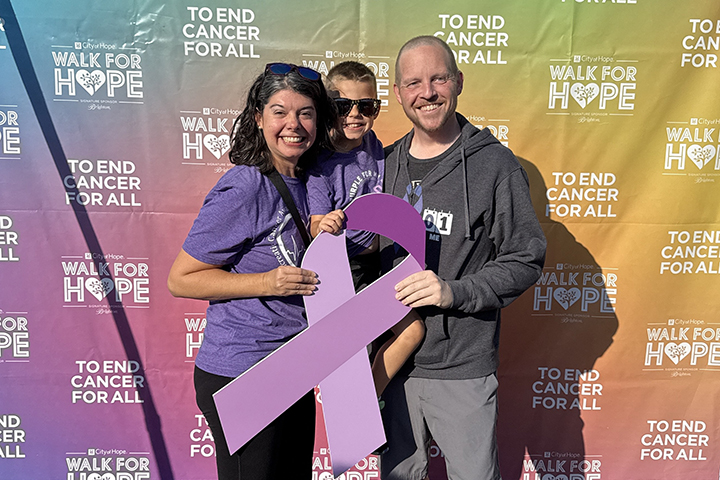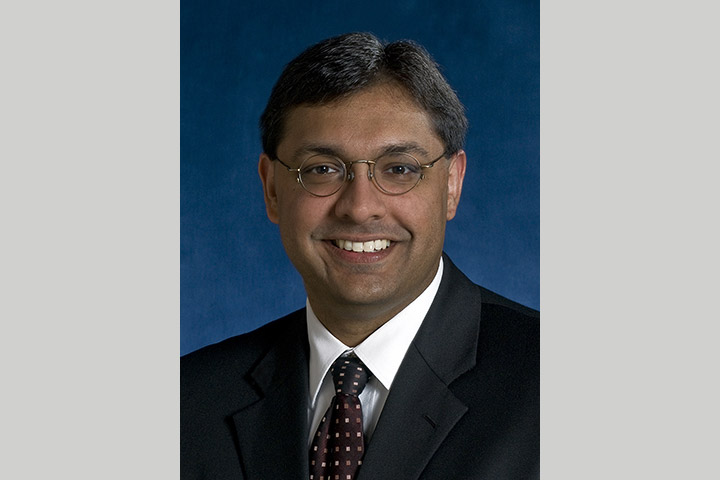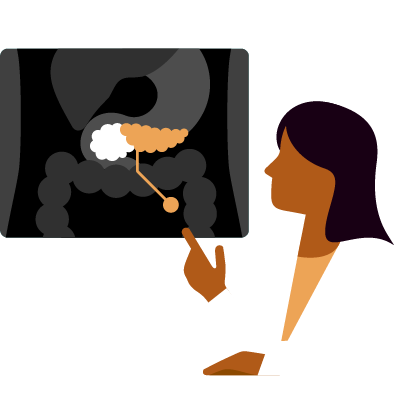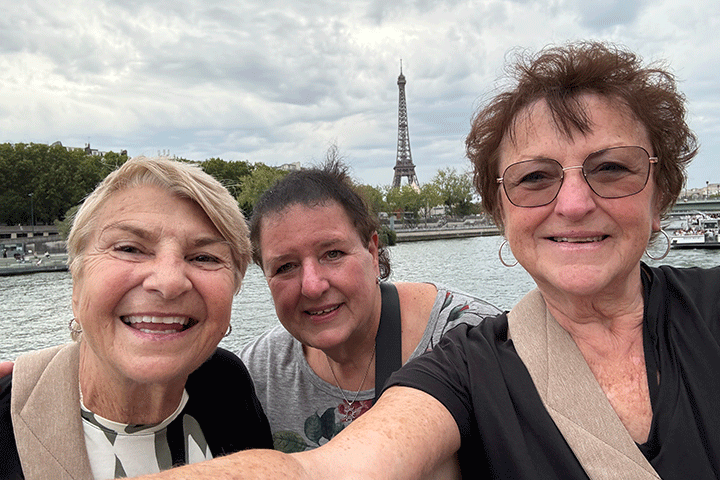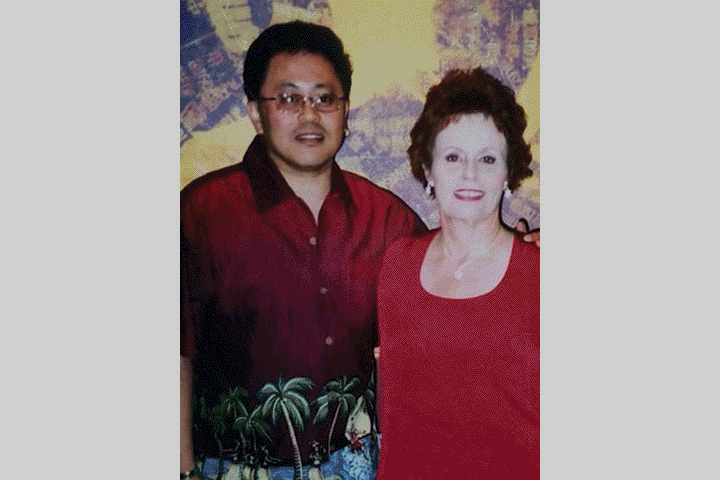Tomorrow Is a New Day
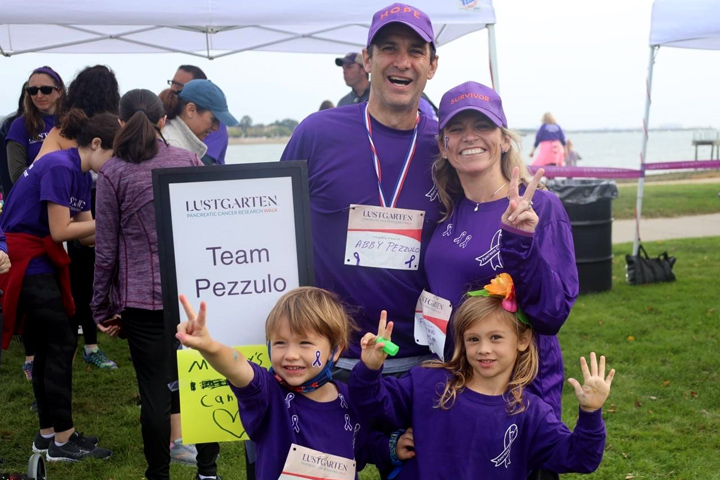
- Chronic anemia leads to pancreatic neuroendocrine tumor discovery
- Chemotherapy
- Whipple procedure
After winning a tennis match the night before, I was diagnosed with a pancreatic neuroendocrine tumor (PNET) in June 2019 at the age of 43.
I had not been feeling right for at least a year. In March 2018 I was found to have bleeding ulcers, which my doctors attributed at the time to overuse of over-the-counter pain medications (later it was determined the bleeding ulcers were from the tumor). Even after the ulcers were treated, I remained severely anemic. I had four blood transfusions and regularly took iron pills, but I was still anemic. My GI symptoms were hard to identify and were attributed to my post-baby body, since I had two babies in less than two years.
In the Spring of 2019, after a colonoscopy and two endoscopies, I finally got an answer. They found a nodule on my intestine, which was determined to be neuroendocrine cancer after a biopsy. A CT scan of my abdomen found the tumor in my pancreas.
I had an ERCP to put a plastic stent in my bile duct because bile drainage was blocked by the tumor. During this procedure, the tumor bled so a second (metal) stent was put in to stop the bleeding.
Treatment from a Respected Hospital
I decided to receive treatment at Massachusetts General Hospital (Boston), not far from my home. There, I met oncologist Dr. Jeffrey Clark and surgical oncologist Dr. Motaz Qadan. I started treatment with chemotherapy—two weeks on, one week off—for two months. I was on capecitabine (Xeloda) and temozolomide (Temodar), as well as Zofran for nausea. The chemotherapy made me tired, and I got sick once when I first started temozolomide. The Zofran helped with the nausea, and I also rearranged the chemo schedule to spread out the pills. Oddly enough, exercise helped me too when I was feeling nauseous. I also found acupuncture treatment to be helpful.
Taking the Next Step
After the first two-month round of chemotherapy, Dr. Clark and Dr. Qadan assessed whether my tumor had shrunk. Although my tumor did not shrink at all, I had a positive biochemical response, as showed by my blood test results. However, Dr. Qadan was willing to perform surgery on me, even though he believed the tumor was on my portal vein. So, on November 11, 2019, I underwent a Whipple procedure. After my surgery, my doctor believed that I was cancer-free! And five weeks post surgery I was back at work.
After surgery I underwent genetic testing for a MEN1 mutation, which can cause PNET. The testing showed that I do not have the mutation, and Dr. Clark said getting PNET was a result of “bad luck.”
After my surgery, I became diabetic, but now post chemo, post Whipple, with only 25 percent of my pancreas remaining, I worked with a nutritionist and am no longer diabetic. In fact, I am better than baseline—before chemo, I was pre-diabetic and my A1C level was HIGHER before any treatments, with a full pancreas. I also take pancreatic enzymes when I eat to help with digestion.
Thoughts on Treatment and Life After
I have always been a positive person and I did not allow my pancreatic cancer diagnosis to change my outlook. I got through all this with great support from family and friends, as well as with lots of HOPE, faith, and prayers. I found that exercise—tennis, walking, and working with a personal trainer—was also very helpful.
Even though the chemo did not shrink the tumor, I would do it again in a heartbeat. I feel that any way I can kill cancer cells is a good thing, in my nonmedical opinion.
Today I am feeling great and am two years cancer-free. I exercise regularly and started boxing post cancer, which I love. I believe that I was selected to have cancer, overcome this challenge, and spread hope to others.
I continued to work during chemo and throughout my journey. Once, while on a business call with a client, I got sick from taking my second chemo drug. When I was in the bathroom, the quote “Tomorrow is a new day,” from Ralph Waldo Emerson, came to me and became my mantra. I believe that there is always hope for tomorrow and tomorrow there could be new discoveries thanks to research, or a better treatment available, or a cure for pancreatic cancer!
Watch Abby tell her story in “Better Than Ever.”
